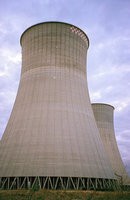
Editor’s note: Catherine Cheney is reporting on German policymaking this week as part of the German-American Fulbright Commission’s Berlin Capital Program, which is funded by the German Foreign Office. BERLIN — Following the Fukushima nuclear disaster in Japan, Germany announced an expensive and accelerated departure away from nuclear technology and toward renewable sources such as wind and solar. The latest step in that transition came yesterday, when the German parliament passed legislation to help prevent blackouts as the country’s reliance on renewables grows. Experts told Trend Lines that Fukushima confirmed Germans’ worries about nuclear energy, forcing the government to rapidly […]




